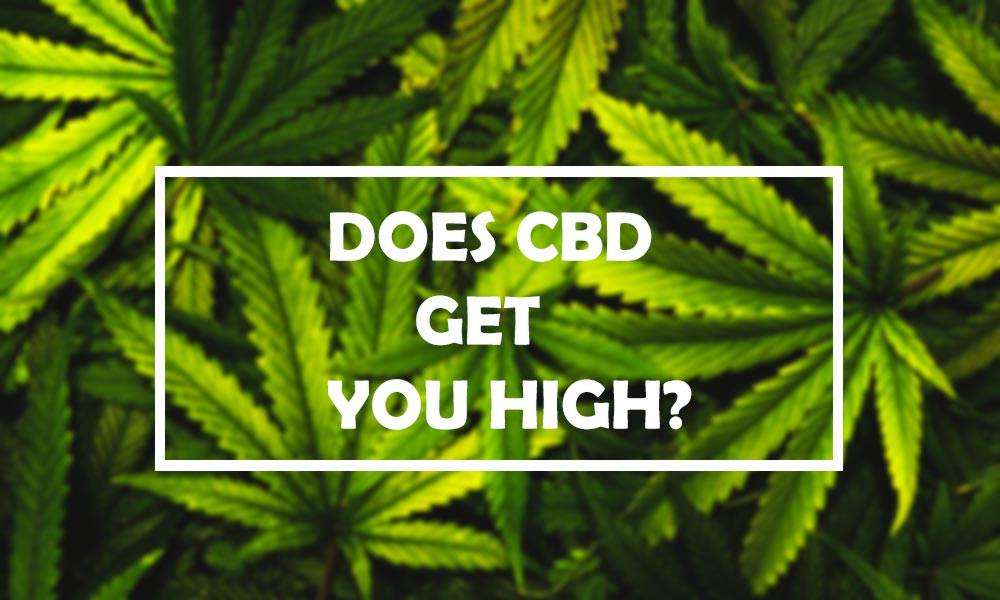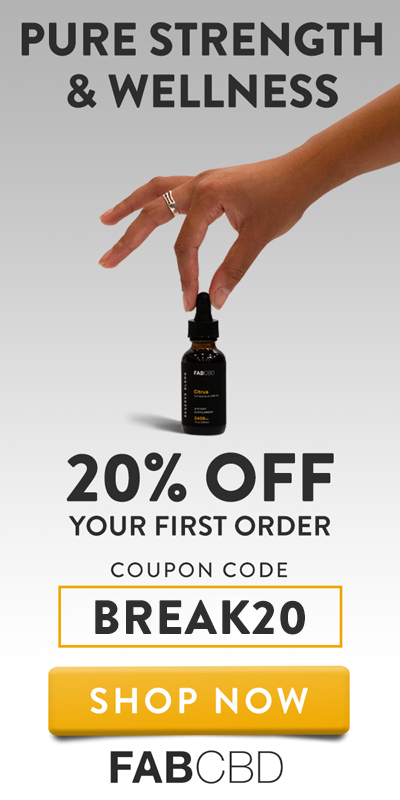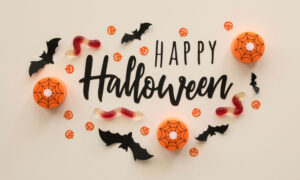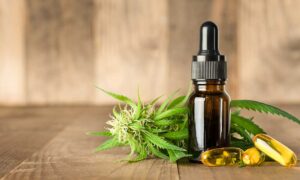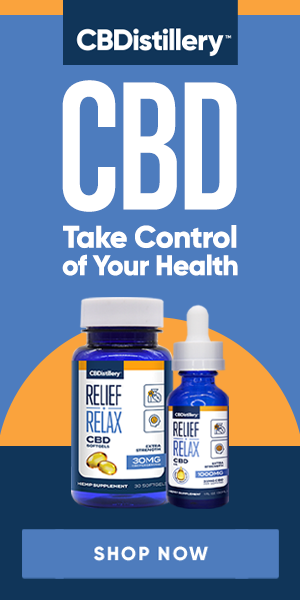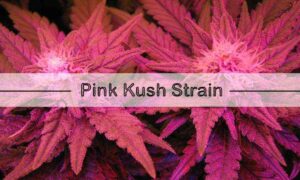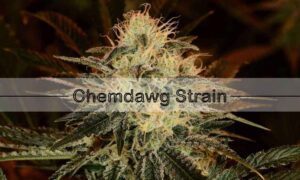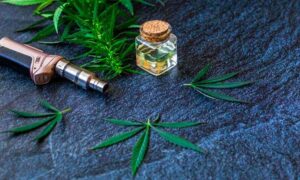Does Cannabidiol aka CBD get you high? This is a question on a lot of minds these days as the Cannabis market is quickly expanding across the United States. Before we dig in and answer this question, let’s cover some quick basics about what CBD is (in case you don’t know yet). If you already know all about CBD oil, then you can skip ahead to the next section.
So, just what is CBD? Cannabidiol, or CBD for short, is one major component of the cannabis plant. Cannabis refers to a plant family. Within the cannabis family, you have two subspecies of plants – hemp and marijuana.
Industrialized hemp is legal to grow and cultivate, as it must contain less than 0.3% of Tetrahydrocannabinol (THC). Marijuana, however, contains high levels of THC – anywhere from 10% to 20% and, in some cases, 25% or more. The Cannabidiol extracted from hemp does not contain THC.
The human body contains an entire system, known as the endocannabinoid system (ECS), that utilizes cannabinoids like CBD throughout the body and brain. The ECS contains 2 important types of receptors that play the most vital role for the body’s use of Cannabidiol.
CBD attaches to CB1 receptors in the brain and central nervous system. CB2 receptors are different. They are located throughout the body, particularly in the peripheral immune system tissues and cells.
Once CBD has attached to various receptors throughout the ECS, signaling pathways for certain body functions are able to be modified by the Cannabidiol These pathways include the ones responsible for:
- Inflammation
- Pain perception
- Stress
- Anxiety
Now that we’ve covered the basics, let’s dig right in to our question –
Why People Think Cannabidiol Can Get You High
As briefly mentioned above, Cannabidiol is extracted from industrialized hemp, which is a member of the cannabis family. Medical marijuana is also a member of the cannabis family, and herein lies where most of the confusion comes from. The THC in marijuana will interact with your body and will get you high.
The confusion comes along with the fact that both of these plants are a part of the cannabis family. But cannabis does not equal levels of THC. The hemp plant contains high levels of CBD and low levels of THC – delivering potentially therapeutic benefits without the euphoric feeling or “stoned” that comes along with THC use.
One thing to look out for, however, in states where marijuana is legal is full spectrum CBD oils. Some of these may include THC levels higher than 0.3%. So, if marijuana is legal where you live, just make sure that you are looking to buy a CBD isolate for sale, instead of a full spectrum. The word, isolate, represents that the CBD is isolated from the other plant components. However, a full spectrum may of course contain some levels of THC.
Can You Get High From CBD Oil?
The answer is no. If you are buying CBD oil made from industrialized hemp, then it can not get you high. As mentioned above, industrialized hemp must contain less than 0.3% THC (>0.03% THC). This trace amount of THC can not and will not get you high.
CBD vs. THC
If you’ve read all of the above sections, then you already have an idea of the difference between CBD and THC. Let’s delve slightly deeper so you have an even better understanding. Tetrahydrocannabinol (THC) is the component found in marijuana that is responsible for the euphoric effects that come along with marijuana use. It is often referred to as being “high” or “stoned.” While THC does have many medical benefits, they can differ slightly from those of Cannabidiol.
Let’s take a look at some THC benefits, so you can compare them to the list of CBD benefits below. The potential therapeutic benefits of THC include (but are not limited to):
- Pain relief
- Relief of nausea
- Help with insomnia and other sleep related issues
- Relief of inflammation
- Relief of general stress
- Depression
- And more…
As you can see, the benefits of THC are similar to those of Cannabidiol oil. One of the main factors people use in deciding which to use is whether or not they want the euphoric side effects of the marijuana or not.
Another hugely critical factor is the current legal status of marijuana in your state. If marijuana is legal recreationally, then the choice is all yours. If is is medically legal, then you must see a doctor for a prescription and state medical license. However, you can legally purchase CBD in many states of USA.
Of course, legality is not the only factor to consider here either. Regardless of your state’s laws, it is always a good idea to talk with your doctor about any and all major lifestyle changes you make. This includes the addition of Cannabidiol as a dietary supplement.
Health Uses And Effects
What are some potential Cannabidiol benefits? Why are so many people starting daily supplementation with this oil from hemp? There are actually quite a few therapeutic uses for CBD. Potential therapeutic CBD oil benefits include (but are not limited to):
- Insomnia and other sleep related issues
- Chronic pain and other inflammatory conditions
- Anxiety disorders like general anxiety, PTSD, and other mood related conditions
- Depression
- Seizures due to epilepsy
- General stress
- Acne
- Appetite and other digestion related issues
- Relief of side effects from some drugs and treatments
- Neuropathic pain
- Cardiovascular health
- Neurodegenerative disorders like Parkinson’s Disease, Alzheimer’s, and Multiple Sclerosis (MS)
- And much more…
Does CBD Have Side Effects?
CBD oil can sometimes come along with side effects. However, these are usually rare and mild. Changing your dosage or making sure to ingest CBD oil with a meal can help tremendously with unwanted side effects of Cannabidiol. So, what are some potential CBD side effects? Some side effects of CBD may be:
- Drowsiness and/or fatigue
- Dry mouth and/or dry eyes
- Diarrhea
- Appetite issues
- Nausea
If you experience any of these unpleasant side effects, then you may simply be taking too much or not eating enough with your CBD oil intake. Talk with your doctor, as well, if you are having unwanted side effects. They may also offer unique help for your individual needs.
Is It Legal to Use CBD Products?
Purchasing CBD is “federally” legal in all 50 states in the US. You can buy CBD oil for sale online or in health stores if they offer it in your area. Just remember the info from above; in order to be totally federally legal, it must be extracted from industrialized hemp that contains less than 0.3% THC. As a reminder, look for CBD oil isolates that are THC free and come from industrialized hemp.
If you live somewhere that marijuana is recreationally legal, then you can legally buy full spectrum CBD oils that include THC. Just be careful with online sales. It is only legal to purchase CBD isolate online, not Cannabidiol oils that contain THC.
If you live somewhere that marijuana is only medically legal, then you must obtain a state medical license to purchase full spectrum CBD oils that include THC in medical dispensaries. These are often rare to find, but some places do have them. Many medical marijuana patients combine the use of marijuana and a separate CBD oil to get the full benefits of both THC and CBD.
Third Party Lab Testing
As of now, Cannabidiol is not regulated by the United States Food and Drug Administration (FDA). For this reason, it is very important to check for third party lab testing of any and all CBD products you buy. What is third party lab testing?
Third party lab testing is simply the process of sending a final product to an independent laboratory for testing of ingredients, potency, and safety standards. This is the only way to verify that you are buying what a CBD company is advertising. If they don’t send all their product batches out for third party lab testing, as well as fully disclose and display results, then you should avoid buying CBD oil or any Cannabidiol products from that company.
Final Thoughts
Now you know the answer to the question; Cannabidiol is not going to make you high as long as it is made from industrialized hemp as a CBD isolate. If you check for THC free Cannabidiol oil isolates when shopping, then you will be in the clear. Remember to check for third party lab testing to verify the safety of the Cannabidiol oil you are buying.
Also, please remember to talk to your doctor about starting CBD oil use. They will be able to give you proper guidance on your ideal dosage, monitor your symptoms and side effects, and help guide you in the right direction for your overall health and well being.

